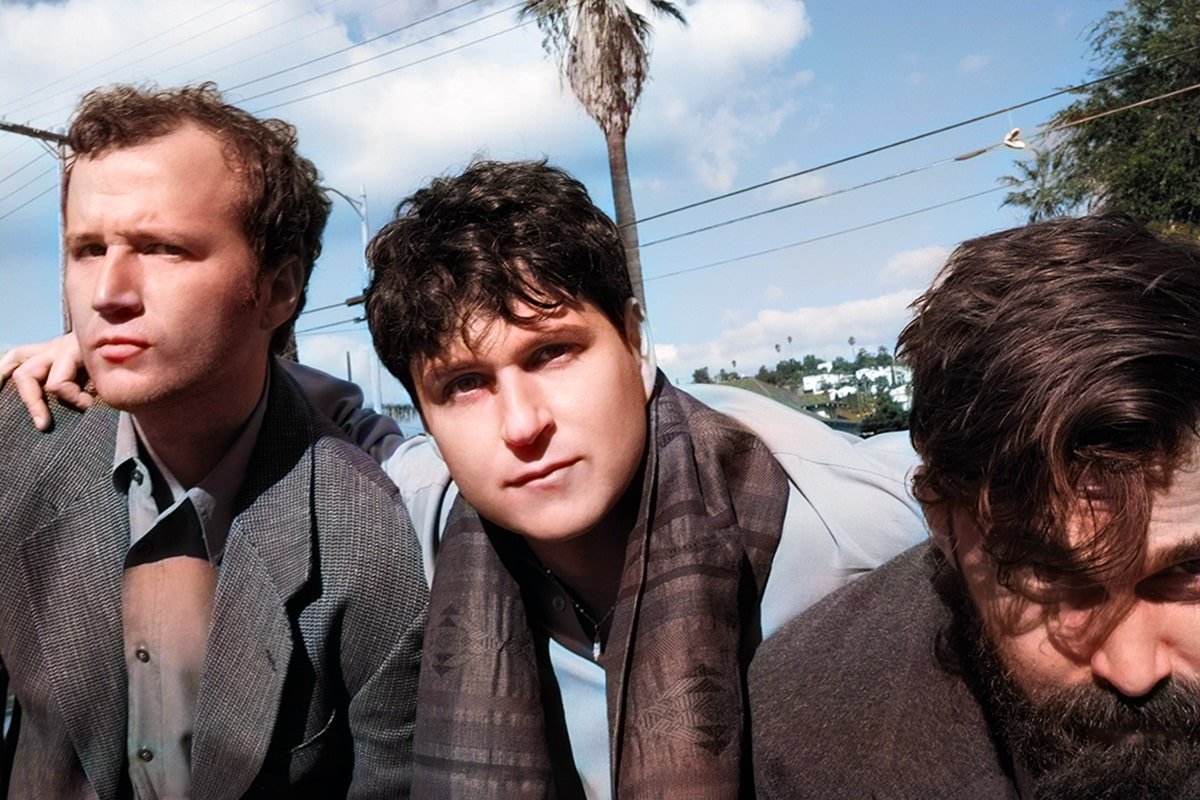Zack Villere Plays with Pop's DNA on "Cardboard City"

The new album from the Northshore's Zack Villere presents and inspires mixed emotions.
“What would you do if I made this for you?”
Zack Villere sings this question in the closing minutes of his new album, Cardboard City, and it’s clear that he doesn’t know the answer. It’s a cowardly question. He wants to know the impact of a gesture before he makes it—in this case, write someone a song—and the album is shot through with that kind of uncertainty and fragility. At the same time, the music shows deliberation and confidence as he references pop R&B from the ‘70s and artists that updated that classic, lush sound. As a result, he sounds like a lover man without game or, with anti-game to be more accurate. He’s not smooth, but he can get a girl.
Villere is from the Northshore, and he sings that line in “Snoopy” with a phrasing that imprecisely mirrors “What would you do if I sang out of tune” from The Beatles’ “A Little Help from My Friends.” That echo says more about how The Beatles have become part of our musical language than it signals a meaningful reference point. Cardboard City is not a Beatlesque album, but the theme of needing help runs through it. In the “My Hero” skit, a bully harasses a kid for his shoes, and it’s not clear which if any of the roles are stand-ins for Villere. In “Rope Swing,” he worries about swinging into a river on one, concerned that he doesn’t have enough arm strength to keep from falling off. “Knockout” tells the story of a fighter who sees a woman while he’s in the ring and quits the battle, taking punches from an opponent that doesn’t care.
In song after song, Villere gestures toward connections, even if those efforts are so tentative and guarded that they border on self-sabotage. Still, he’s aware of at least some of his issues. The history of pop music is the history of men blaming women for not appreciating or understanding their love, but Villere knows he, not her, is the problem. “I think I hate myself / which I can’t accept so I project it on you,” he sings in “Projecting.” That recognition doesn’t mean relationships with him will survive, but at least he knows what he has to work on.
The music explains why a woman would see something behind the frailty. As a bedroom producer under the name Fro-Yo Ma, Villere constructed beautiful, miniature, psychedelic pop/soul instrumentals, and he brings those same chops to back up his vocals. You can hear musical gestures that borrow from Stevie Wonder and Roberta Flack as easily as you can hear Dilla and the last generation of hip-hop producers in his his tracks. Glitches distress songs that otherwise lean on classic electric piano, organ and guitar sounds. Cooing backing vocals abruptly appear and exit songs, sometimes to add notes of sweetness, sometimes to add a little serration. Drums have never been a crucial part of his sound, and they remain on the sidelines as Villere plays more with melody, harmony, and discordance on Cardboard City.
Villere’s work under his own name—Cardboard City and 2017’s Little World—ask interesting questions, starting with what he’s up to. It’s easy to wonder if he’s serious, but the work is too finished and musical to dismiss it as naive or a goof. It’s equally tempting to hear the albums as critiques of smooth lovers in R&B songs, rephrasing their macho come-ons in un-macho ways, but that doesn’t ring true either. There’s no undercurrent of conceptual or intellectual triumphalism in his work that would make me think Villere’s invested in being on the right side of any aesthetic divides. His plain-spoken lyrics tumble over the boundaries of bars and measures, making Cardboard City sound more like Villere’s a guy with a lot on his mind. It feels like he has borrowed a musical trope and mapped his reality on to it, even if the fit is a little baggy.
When I reviewed Little World, Prince came to mind as a reference point. Another that I had less confidence in at the time was the artist Mike Kelley, who many music fans will know from the cover of Sonic Youth’s Dirty. I have no idea if Villere knows Kelley’s work, but the cartoons Villere drew to accompany his Fro-Yo Ma releases appear to exist on the same spectrum as Kelley’s stuffed animals. They’re certainly working in similar ways (Actually, Kelley worked. He died in 2012). Kelley used stuffed animals, trash, and materials considered déclassé by the art world, flirting with cuteness in a space that takes the worthlessness of “cute” as a given. The works weren’t simply conceptual middle fingers to the art establishment, though. Kelley used cultural detritus and over-the-counter forms to reflect his inner life, and Villere’s songs work in similar ways. He uses hip-hop gestures because hip-hop is now the musical lingua franca, but by being openly uncool, Villere is musically transgressive. He foregoes the one theoretically immutable value in pop music and gives you reason to wonder if cool’s really that big a deal. Despite his use of first person and spoken/sung vocals, I never assume Villere’s lyrics are confessional. Donald Trump’s defenders have argued that he should be taken seriously but not literally, which strikes me as a terrible way to approach presidential communication but the right approach to Villere.
Villere is playing with pop culture’s DNA, and he’s doing so in musically compelling way. He’s engaging, even when his songs seem to count off all the ways that he isn’t. I’m ambivalent about Zack Villere, the guy in these songs, but I’m 100 percent on board with Zack Villere, the artist behind them.






